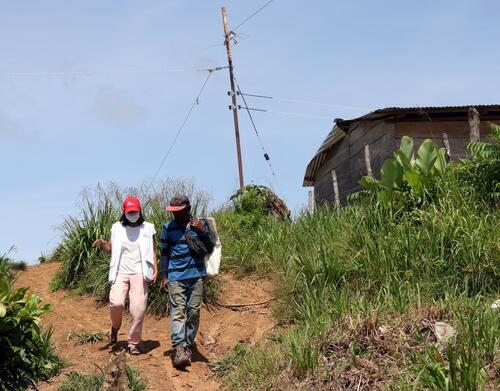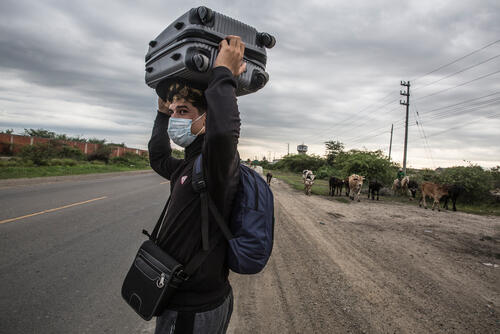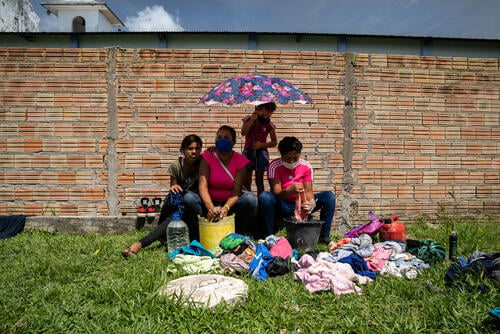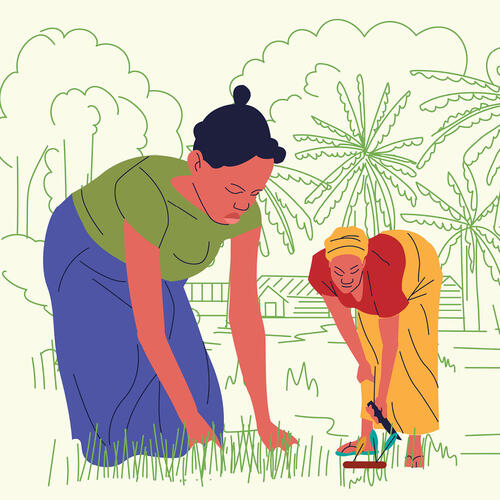In the Colombian region of Catatumbo, there is an ongoing crisis caused by armed conflict, with precarious living conditions in temporary settlements, and violence against women and children. After three years providing assistance in the districts of Tibú, Puerto Santander and the village of La Gabarra, Médecins Sans Frontières (MSF) is handing over our activities to Premiére Urgence Internationale (PUI). We call on the institutions to look after the needs of Venezuelan and Colombian migrants, who still do not have basic living conditions.
In the Divino Niño, Tres Montañas and 12 de Septiembre districts, and in the Yukpa community, MSF found that at least 10,000 families live in disgraceful sanitary conditions.
“In these settlements, and in four others in La Gabarra where we've been working, we have found serious problems with drinking water, hygiene and lack of medical care for vulnerable Venezuelan and Colombian people,” says Sulaith Auzaque, MSF coordinator in Catatumbo. “At our clinics, we continue to see people with respiratory diseases, children with gastrointestinal diseases, skin problems, malaria and even COVID-19.”
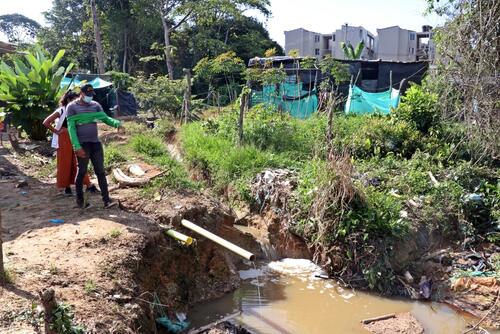
Three years of activities – and responding to violence
From November 2018 to October 2021, MSF conducted 47,825 medical consultations: 42,720 general outpatient consultations; 210 for sexual violence; 4,729 for prenatal care; and 166 for postnatal care. During this time, there was a series of 11 femicides reported.
“There is considerable under-reporting of violence against women, largely due to different barriers, including the fear of reporting it,” says Auzaque.
Over three years, our teams carried out 13,610 family planning consultations, reaching a total of 8,789 people. In La Gabarra, Puerto Santander and Tibú, MSF provided mental healthcare for Venezuelan and Colombian people who are on the move, reaching a total of 3,527 consultations.
The precarious conditions under which thousands of families have arrived in Colombia have exacerbated feelings of sadness, uncertainty and anxiety in many cases. Over the course of our activities, the mental health team worked using an individual and psychosocial approach, taking into account difficulties resulting from armed conflict and xenophobia.
Government institutions and humanitarian organisations must make a greater effort to improve water, sanitation and shelter.Sulaith Auzaque, MSF coordinator in Catatumbo
Main needs
Most of the children crossing the border arrive with some type of medical condition, including skin, gastrointestinal or respiratory issues. MSF staff have also treated pregnant women who have had no prenatal screening, patients with diabetes, or cancer patients who have had no access to drugs or periodic monitoring. In addition, families are living in overcrowded conditions, often exposed to sources of contaminated water, which can lead to outbreaks of disease.
For patients who need hospital care – even if they do have health insurance – they need to travel to Cúcuta, which can take up to seven hours, and then wait for three months to get a specialist appointment. This is further complicated by the lack of safety and protection in the area due to disputes between different armed groups.
“The families constantly worry about the conflict because we see children being recruited,” says Eduardo*, who lives in one of the temporary settlements. “A lot of people end up working on coca plantations, so they're more exposed there. Those of us who've migrated, have done it to find work and food, but it's been difficult.”
People have also been exposed to violence resulting from sex work and forced movement because of threats from armed groups. It is key for government institutions and humanitarian organisations to work towards better comprehensive care for Venezuelan migrants and Colombian people who have no health insurance.
“Government institutions and humanitarian organisations must make a greater effort to improve water, sanitation and shelter,” says Auzaque. “In addition, there are different types of violence against people in the region which under no circumstances should we normalise.”



